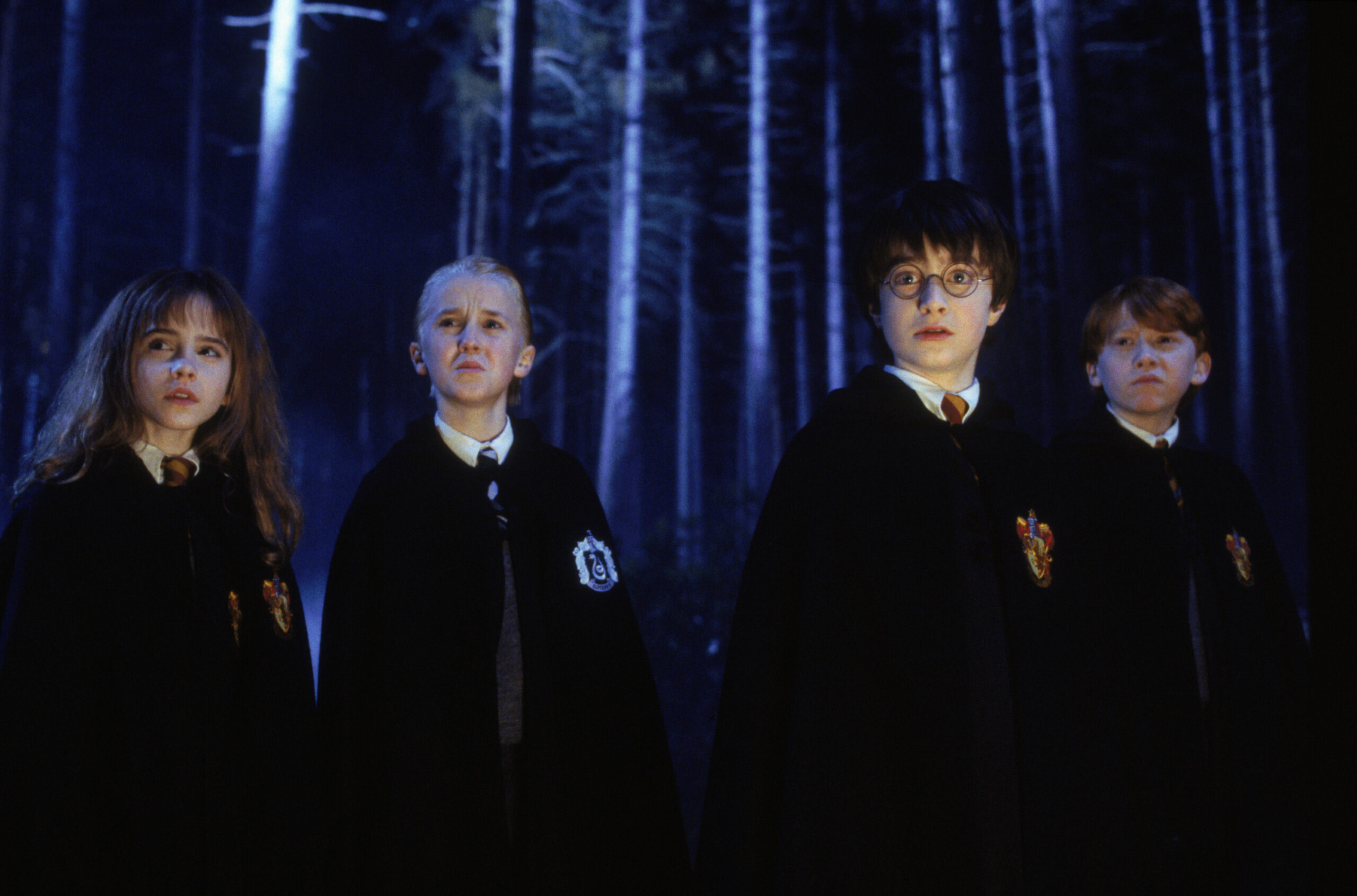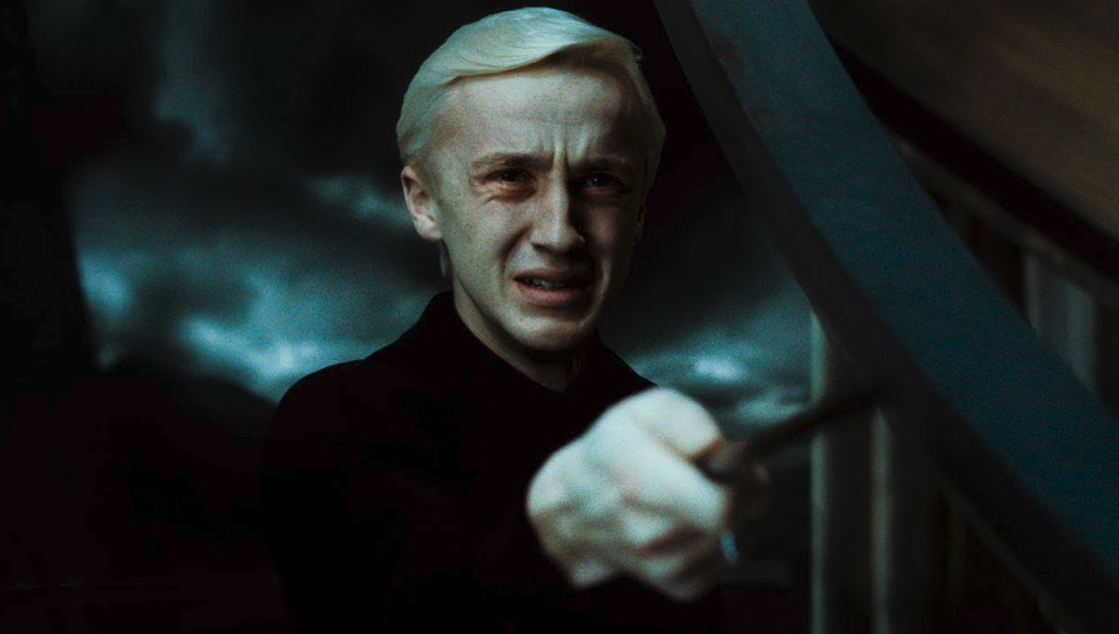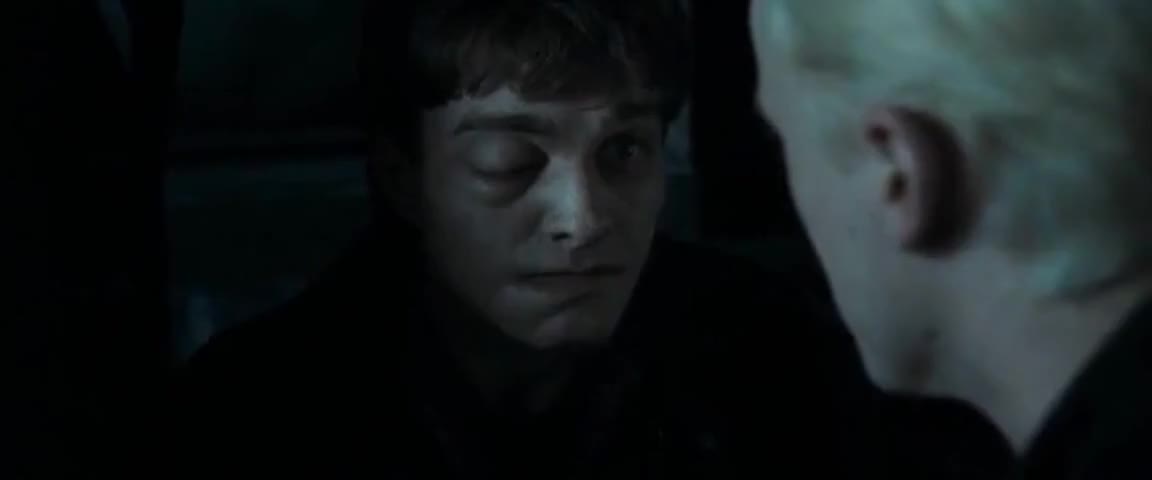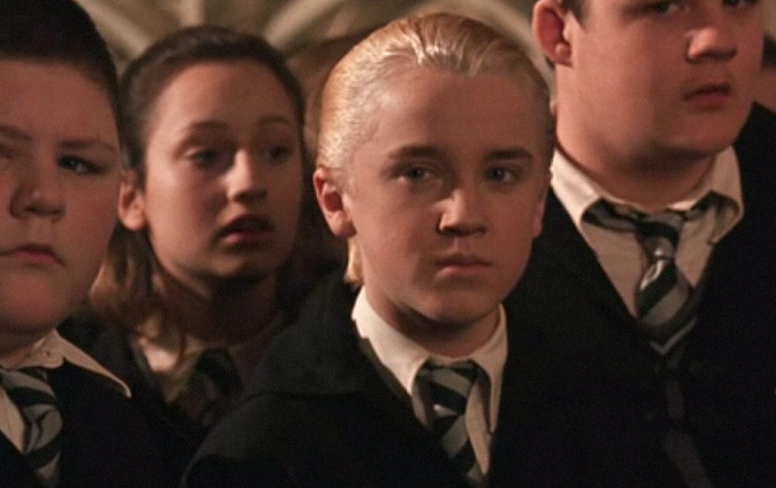When Draco Got It Right (Or At Least Not Wrong)
June 12, 2020—Draco Malfoy is not a good person. I’d like to make that clear from the start. I don’t think he’s really a tragically misunderstood hero in disguise who just needs someone to see the real him in order for his secret goodness to shine through. He’s a bully and a bit of a sadist and an attempted murderer, and there’s no way to get around that.
But he’s not Voldemort or Umbridge or even his father either. He’s layered and conflicted and nuanced in a way that they aren’t, and he sometimes makes the right choice, even if by accident.
He offers Harry his hand
This is a defining moment for Draco Malfoy, and there are plenty of opinions about what Draco does here, why he does it, what he should do instead, and whether Harry should react differently. And it’s probably true that, when he offers Harry his hand, he’s motivated primarily by Harry’s celebrity and his father’s ambitions. But there’s nothing inherently wrong with holding out his hand to a new acquaintance and offering to help him navigate the Wizarding world.
Before the train, without knowing a thing about him, Draco has already engaged Harry in conversation at Madam Malkin’s. At that point, he is simply an 11-year-old boy who sees another 11-year-old boy shopping to get ready for a school they are both to attend. And his instinct is to strike up a conversation. He’s bad at it, there’s no denying. He’s arrogant and a little condescending to Harry, but he’s not cruel or belligerent.
So when a more well-informed Draco offers his hand to Harry a few weeks later, even as he belittles Ron and talks down to them, I think at least a small part of him is motivated by the same thing that prompted him to speak to the stranger in the robe shop: the desire to make a friend.

He objects to going into the Forest
I find it interesting that most reasonable people agree that Hogwarts is an unacceptably dangerous place for children, yet poor Draco gets picked on for not wanting to go into the Forbidden Forest in Sorcerer’s Stone. The Forest is well-known for being perilous, yet he is told that he must go inside with only a cowardly dog and a man who’s not allowed to do magic for protection. And then Hagrid splits off from Draco and Harry, leaving them basically defenseless.
Of course, Draco objects. Of course, he’s frightened. Does he come across as particularly brave, especially in juxtaposition with the Gryffindors who go in with him? No. But he’s an 11-year-old kid being thrust into a potentially life-threatening situation. If anything, he’s the reasonable one of the group.
He lowers his wand
This is Draco Malfoy’s famous crisis point. He’s supposed to kill Dumbledore, on Voldemort’s orders. He has Dumbledore weakened, disarmed, (seemingly) alone, and at the tip of his wand. Nothing is stopping him from delivering the final blow. But he hesitates and stalls and keeps talking until, unable to go through with murdering his Headmaster, he begins to lower his wand.

In the end, it doesn’t change the outcome. They’re interrupted before any resolution can be made between the two of them, and Dumbledore is dead by the end of the night anyway. But this is the ultimate test of character for Draco Malfoy, and he passes.
He doesn’t sell out Harry at Malfoy Manor
It’s rare for the Harry Potter movies to go out of their way to articulate something that is merely implied or part of Harry’s inner thoughts in the books. Usually, it was the other way around, and important dialogue between characters was cut. But the filmmakers felt that this point is important enough for Harry to spell it out verbally.
When Harry, Ron, and Hermione are captured and taken to Malfoy Manor, Harry’s face is distorted from a Stinging Jinx, and Draco is asked to identify him. In both the books and the movies, he looks directly into Harry’s eyes and says he can’t be sure, despite pressure from his family. In the books, Harry suspects Draco is lying and trying to buy him time. In the movies, he outright confronts Draco about it in the Room of Requirement during the Battle of Hogwarts.
Why Draco makes this decision is unclear, given that he must know that Harry’s identity will be revealed sooner rather than later regardless of what he does. But, when given the chance, he doesn’t sell out his former classmates, and that’s probably the most significant stand he makes in the entire series in support of the “Light” side.

Even in danger, he thinks of his friend
This is an often-overlooked moment in Deathly Hallow, but one I’ve always found very telling. By this point in the series, we’ve spent hours reading about how selfish and spoiled Draco Malfoy is and how little regard he has for other people – even those he considers friends.
But after Harry, Ron, Hermione, Draco, and Goyle barely manage to escape a Room of Requirement devastated by Fiendfyre, his immediate instinct is to ask about Crabbe, even as he struggles to breathe through the smoke. At this point, we as readers have no sympathy to spare for the despicable idiot that is Vincent Crabbe, and Ron is our proxy when he responds harshly. But that Draco’s first reaction is concern for the friend who didn’t make it out, the one who got them into the mess in the first place, shows his character in an entirely new light.


You ought to be a part of a contest for one of the greatest websites on the web.
I will recommend this blog!